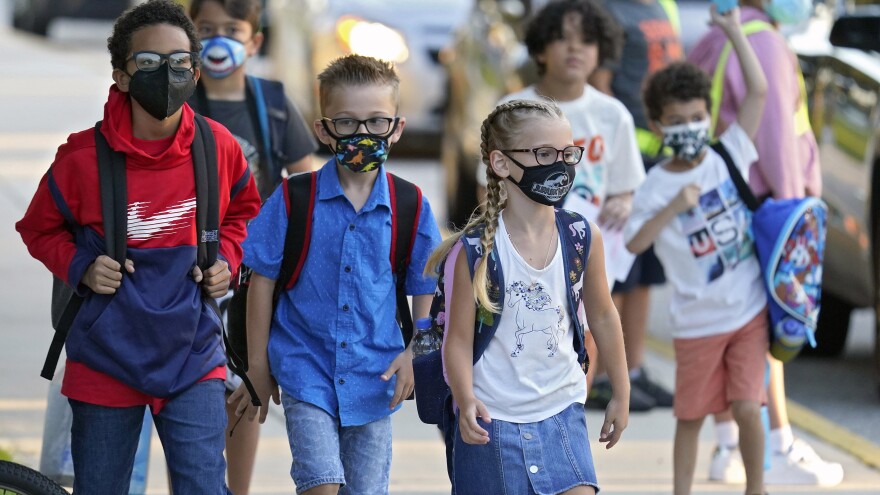Coronavirus cases are once again on the rise in South Florida. But schools and employers have fewer tools to slow the spread of COVID-19, after the state banned mask and vaccine mandates.
In Monroe County, the number of new cases has increased more than 260% over the past two weeks, according to an analysis by the New York Times. In Miami-Dade County, the positivity rate has reached 11%, according to county data.
Florida International University professor of infectious disease Aileen Marty said the numbers are concerning — and they’re likely an undercount, with many residents turning to home test kits and not necessarily reporting their results.
“The thing that keeps me up at night is the reality of what we know about coronaviruses — and have known for decades — and that is, immunity from natural infection does not last, number one. And now we know more recently, immunity from vaccines for humans does not last that long,” Marty said. “As their immunity goes down and case circulation goes up, we get to another point where it's possible that we could again overwhelm health care.”
The increase in cases is leading to more hospitalizations and more disruptions at home, work and school. With many employers still grappling with staff shortages, even modest increases in workers calling in sick can be a burden, with schools, stores and restaurants struggling to cover shifts.
John Sullivan, chief communications officer for Broward County Public Schools, says the district is seeing a “slight uptick in cases”, but he said the school board is limited in how it could respond.
”There’s not a lot we can do as far as additional safeguards,” Sullivan said, “beyond the usual encouraging those who are sick to go home, to wear masks and social distance, there’s not a lot the school board can do because of the passage of HB 1-B.”
While mask and vaccine mandates are off the table, Marty says schools should look for ways to improve ventilation and social distancing — by investing in higher quality HVAC systems and simply taking students outside as much as possible.
“We know all these nonpharmaceutical public health measures are very beneficial. And absolutely, masking has greatly reduced transmission. And there's no question about that, despite all the silliness that you see on the internet. Masks definitely work,” said Marty, who has also served on a COVID task force for Miami-Dade County Public Schools.
In Monroe County, the school district is not actively considering taking additional precautions, according to spokesperson Amber Archer Acevedo.
“At this time, all our COVID protocols remain the same. We monitor our cases with a weekly dashboard on our website but we have not changed any protocols,” she said.
According to Acevedo, the district does not have specific thresholds in place that would trigger additional protocols, but officials continue to work with local public health experts to monitor the situation.
Elmo Lugo, a spokesperson for Miami-Dade schools, says the district continues to take a slate of approaches, including increasing cleaning, improving HVAC systems, encouraging masking and hosting community vaccination events.
“[T]he District is always leveraging its existing partnerships with local health and municipal entities to continue COVID-19 testing and vaccinations in our schools,” Lugo said in a statement, “as we know that vaccination is the most effective means of helping to reduce the spread of the coronavirus.”
While districts can encourage and facilitate COVID vaccinations, they can’t mandate them, despite the state’s long history of requiring students to be vaccinated against a slate of potentially serious infections like measles and pertussis, a public health measure that has saved scores of lives.
“It makes no sense to me,” Marty said, “knowing that we have a safe and efficacious vaccine. In fact, one of the safest and most efficacious vaccines of any, that we wouldn't also do that for this particular virus. Which is rather nasty. And has a potential of putting a child in the hospital. Or that child getting infected and then transmitting to a vulnerable person in their family.”
Copyright 2022 WLRN 91.3 FM



